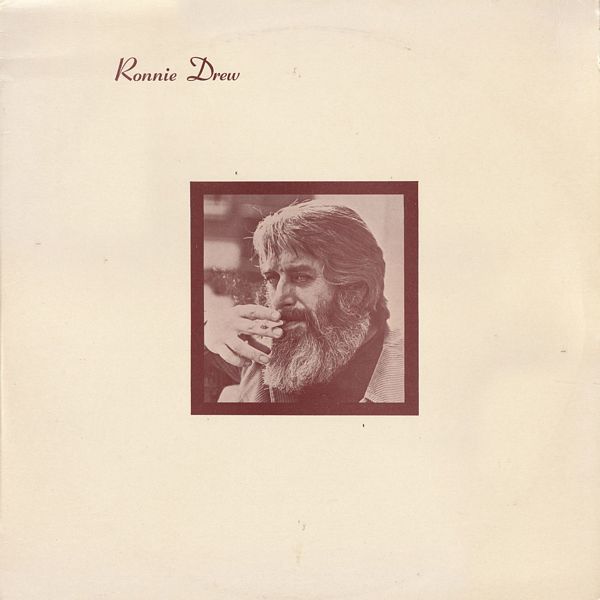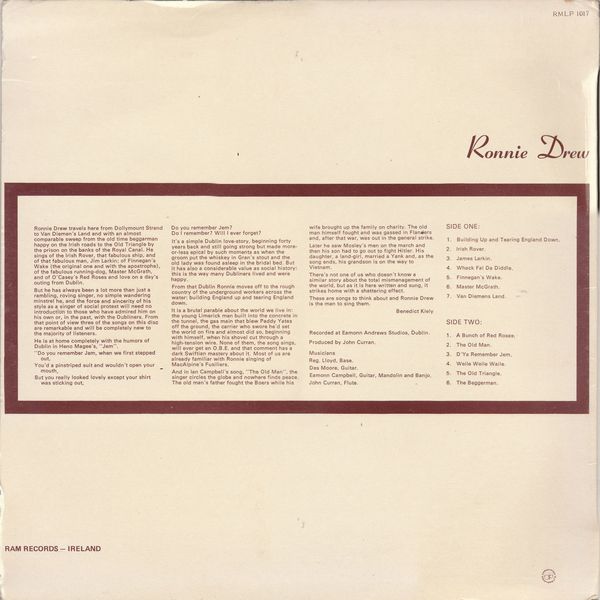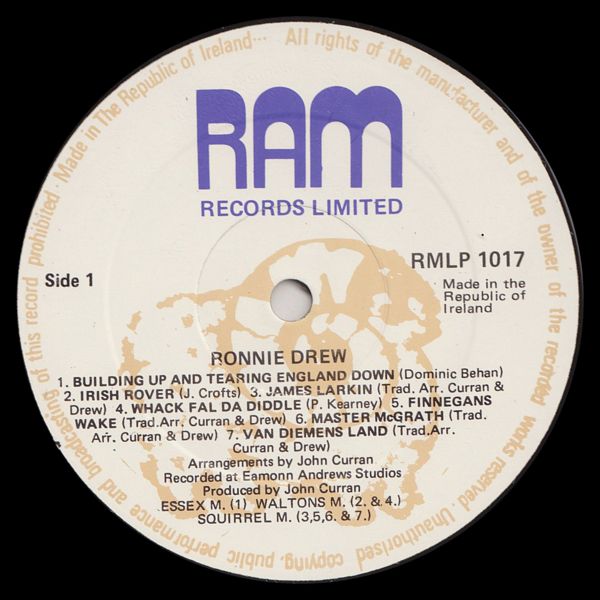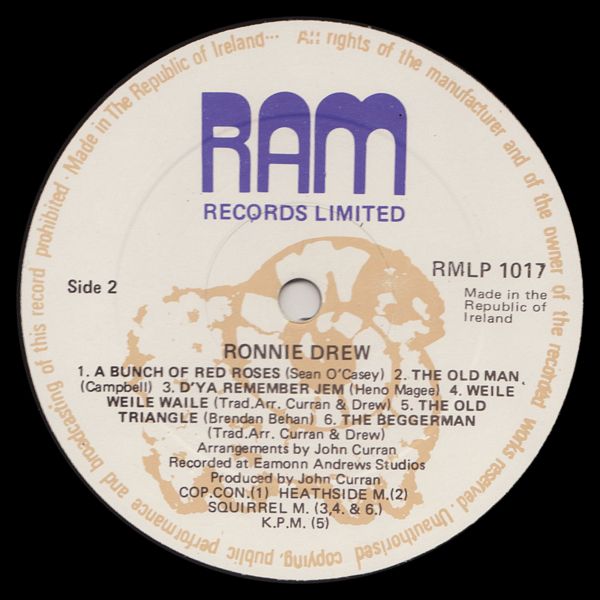

 |


 |
Sleeve Notes
Ronnie Drew travels here from Dollymount Strand to Van Diemen's Land and with an almost comparable sweep from the old time beggarman happy on the Irish roads to the Old Triangle by the prison on the banks of the Royal Canal. He sings of the Irish Rover, that fabulous ship, and of that fabulous man, Jim Larkin; of Finnegan's Wake (the original one and with the apostrophe), of the fabulous running-dog. Master McGrath, and of O'Casey's Red Roses and love on a day's outing from Dublin.
But he has always been a lot more than just a rambling, roving singer, no simple wandering minstrel he, and the force and sincerity of his style as a singer of social protest will need no introduction to those who have admired him on his own or, in the past, with the Dubliners. From that point of view three of the songs on this disc are remarkable and will be completely new to the majority of listeners.
He is at home completely with the humors of Dublin in Heno Magee's, "Jem".
"Do you remember Jem, when we first stepped out?
You'd a pinstriped suit and wouldn't open your mouth.
But you really looked lovely except your shirt was sticking out,
Do you remember Jem?
Do I remember? Will I ever forget?
It's a simple Dublin love-story, beginning forty years back and still going strong but made more-or-less epical by such moments as when the groom put the whiskey in Gran's stout and the old lady was found asleep in the bridal bed. But it has also a considerable value as social history: this the way many Dubliners lived and were happy.
From that Dublin Ronnie moves off to the rough country of the underground workers across the water: building England up and tearing England down.
It is a brutal parable about the world we live in: the young Limerick man built into the concrete in the tunnel, the gas main that blew Paddy Yates off the ground, the carrier who swore he'd set the world on fire and almost did so, beginning with himself, when his shovel cut through a high-tension wire. None of them, the song sings, will ever get an O.B.E. and that comment has a dark Swiftian mastery about it. Most of us are already familiar with Ronnie singing of MacAlpine's Fusiliers.
And in Ian Campbell's song, "The Old Man", the singer circles the globe and nowhere finds peace. The old man's father fought the Boers while his wife brought up the family on charity. The old man himself fought and was gassed in Flanders and, after that war, was out in the general strike.
Later he saw Mosley's men on the march and then his son had to go out to fight Hitler. His daughter, a land-girl, married a Yank and, as the song ends, his grandson is on the way to Vietnam.
There's not one of us who doesn't know a similar story about the total mismanagement of the world, but as it is here written and sung, it strikes home with a shattering effect.
These are songs to think about and Ronnie Drew is the man to sing them.
Benedict Kiely